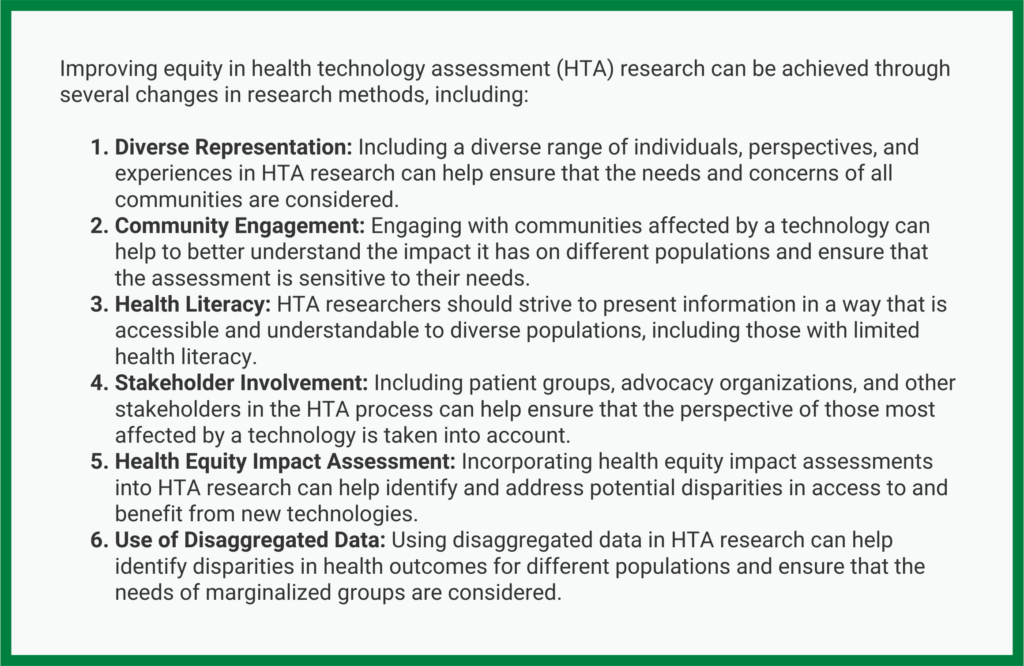By Jennifer Bright, MPA
In 2021, the Innovation and Value Initiative (IVI) first hosted a webinar series on the implications of health technology assessment (HTA) for health equity, drawing attention to the limitations of data and methods, and the inability to understand the impact of HTA for patients and families already experiencing disparities. Since then, I’ve been fascinated with exploring the dimensions in which equity should inform and be advanced by the process and practice of health economic analysis. IVI embarked on a two-year initiative to ask these questions, informed by dialogue with more than 40 diverse stakeholders representing patient and caregiver lived experience, research, policy, science, clinical care, and payer/purchaser perspectives. This journey has revealed fundamental changes in mindset, processes, data, and communications that are essential to making sure that HTA is centered in health equity. Read our Health Equity Initiative (HEI) Update – Synthesis of Cross-Stakeholder Insights for additional details.
Recently, while listening to a presentation about “fear and wonder” as a dynamic of health care innovation, the subject of ChatGPT (artificial intelligence) arose. Curious, I posed the following question to the AI app: “What changes in research methods can improve equity in health technology assessment?”
Almost immediately, I received a response that both delighted and perplexed me (see image below). The ChatGPT actions aligned with many of the ideas emerged from more than 30 hours dialogue during the past year. This virtual brain echoed the voices of so many insightful contributors, and affirmed that IVI’s work, while complex, was headed in the right direction.

At the same time, it was stunning to see the minimal time it took to generate recommendations so similar to IVI’s work. If “the universe” already knew what it took to achieve change, was our effort worth the time? Upon reflection, it became clear that two important components were missing from both the ChatGPT’s answer and from ongoing debate in the HTA field: intention and accountability. If decision-makers with the power to drive, lead, and fund change don’t act or compel others to think differently, then we can create an infinite number of checklists and academic papers, without achieving authentic, measurable impact in health equity. It’s encouraging to observe a rising tide of leaders, including philanthropies and government agencies, modeling the intentional investment of time and resources to elevate marginalized voices, build and use data to answer questions, and consider new processes and methods to give us valuable insights into our life experiences. Such work is complex, but if more stakeholders embrace their role to assess current partnerships and practices, implement change, and share the results we can create meaningful progress.
While ChatGPT can’t solve the issue of equity in HTA, this unscientific experiment confirmed that we already know: the essential elements must change. The real work lies in leading by example, and holding others accountable to do the same.
###
About IVI
The Innovation and Value Initiative (IVI) is a 501(c)(3) tax-exempt, non-profit research organization dedicated to advancing the science and improving the practice of health technology assessment through development of novel methods and the creation and application of enhanced health technology assessment models to support local decision-making needs in healthcare.
Contact: Smita Sanwardeker
Phone: 267.909.7661
E-Mail: smita.sanwardeker@thevalueinitiative.org
